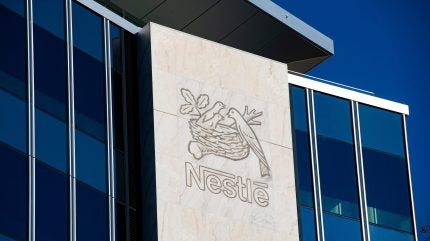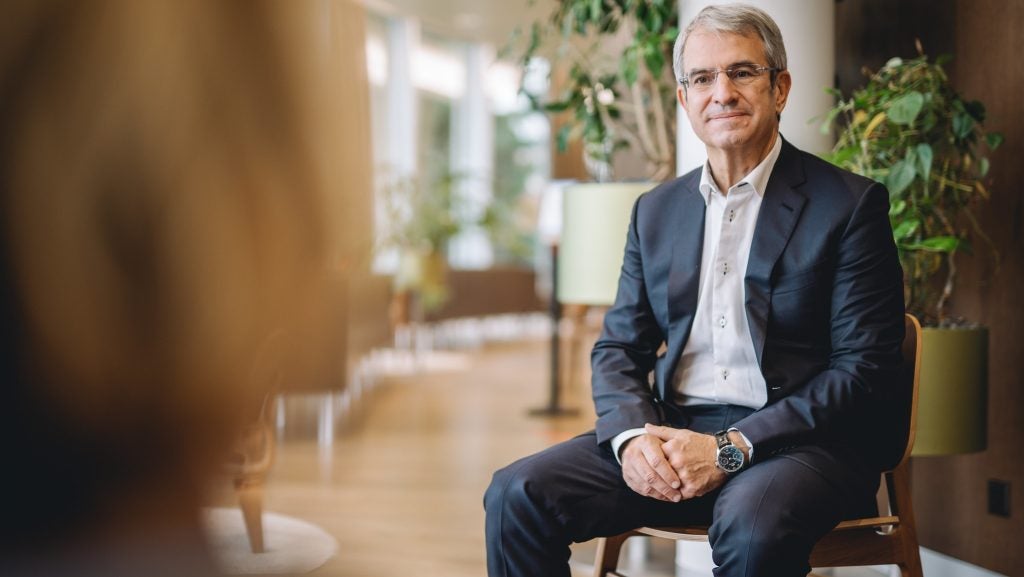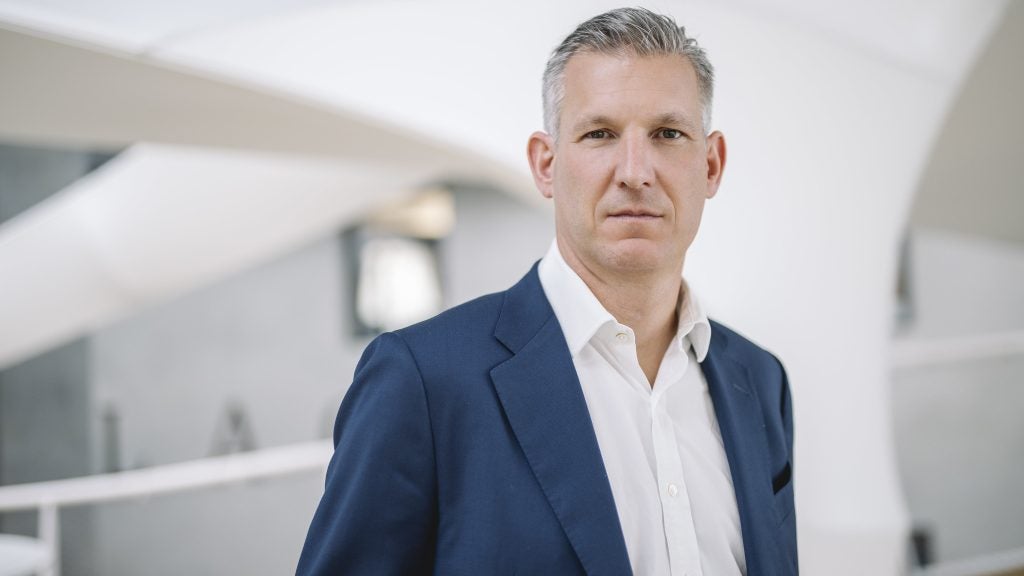
Nestlé’s reputation as one of the consumer goods sector’s dependable names has taken a knock over the last couple of years and a second change at the top in 12 months – this time for personal reasons – has left industry watchers uncertain what lies ahead for the world’s largest food maker.
To say Nestlé’s dismissal of CEO – and company veteran Laurent Freixe – for an “undisclosed romantic relationship with a direct subordinate” took the market by surprise is something of an understatement.

Discover B2B Marketing That Performs
Combine business intelligence and editorial excellence to reach engaged professionals across 36 leading media platforms.
In part, the reaction can be explained by the fact Freixe, with almost 40 years at Nestlé, was, when he took the helm a year ago, seen as a safe pair of hands who could rejuvenate a business that had seen sales growth slow and, to some, become less focused and a little bloated.
“Laurent Freixe’s departure … has left us shocked,” RBC Capital Markets analyst James Edwardes Jones said yesterday (1 September). “When he took over as CEO just over a year ago following Mark Schneider’s ejection from the role, we thought of him as a Nestlé lifer who would restore the company’s reputation of slightly boring predictability. How wrong we were.”
Schneider’s departure, announced last August, may itself have raised eyebrows – at the time, one analyst described the move as “abrupt” – but Freixe was seen as the right successor to improve Nestlé’s execution and breathe fresh life into sales.
Weeks after Freixe became CEO, Nestlé cut its forecast for 2024 organic sales and underlying EPS, a move the market interpreted as a sign of the challenges facing the new chief executive, not least as Schneider had also pared back the outlook for those metrics three months earlier.

US Tariffs are shifting - will you react or anticipate?
Don’t let policy changes catch you off guard. Stay proactive with real-time data and expert analysis.
By GlobalDataHowever, the company’s results for the second quarter of this year were seen as a disappointment, with underlying sales declining when the market was expecting growth.

Perhaps Nestlé’s share price has been the clearest sign investors hadn’t been impressed with the progress made under Freixe. Up to the close of trading yesterday, just hours before the company’s surprise announcement, shares in Nestlé had fallen almost 17% in the last 12 months.
In July, Inside Paradeplatz, a specialist Swiss publication focusing on the financial markets, reported Freixe was in a romantic relationship with an employee.
Nestlé had started receiving anonymous reports via staff-disclosure channels in May. The company held an internal investigation during which Freixe denied the relationship. The Nestlé board then decided to open an “external investigation with the support of independent outside counsel, which had a wider remit”, a spokesperson says. The result was Freixe’s departure. The relationship breached Nestlé’s “code of business conduct”, the company said yesterday.
“This was a necessary decision,” chairman Paul Bulcke said. “Nestlé’s values and governance are strong foundations of our company. I thank Laurent for his years of service at Nestlé.”
Nestlé’s new CEO
There will be plenty of speculation about whether Nestlé should’ve appointed Freixe in the first place. Inside Paradeplatz claims Freixe had had a relationship with another Nestlé employee when he led the company’s business in Hungary. The relationship is said to have led to the pair getting married.
There will also be questions about the efficacy of Nestlé’s investigations into the claims about the latest relationship once it received tip-offs earlier this year.
Nevertheless, for industry watchers and investors, the big questions centre on what the tumult at the top of Nestlé means for the company’s direction. There are differing views about what could come next.
The KitKat and Maggi maker has appointed Philipp Navratil, the CEO of Nestlé’s coffee business Nespresso, as its new chief executive.
Navratil has worked at Nestlé since 2001, holding roles in Central America before becoming the SVP of the company’s coffee strategic business unit in 2020.
Bernstein analyst Callum Elliott said today the appointment also came as “something of a surprise to us”, pointing to the fact Navratil was running Nestlé’s coffee business in Mexico as recently as 2020.
“We expect that investors will question the appointment of another Nestlé insider and perhaps also the seemingly rapid timescale of his appointment which presumably implies that no extensive external search was undertaken,” Elliott added.
The speed of events would make the lack of a wide-ranging outside search understandable, although some may argue a board should always maintain a list of possible candidates for chief executive.
In yesterday’s statement, Bulcke – who himself is set to leave Nestlé next year – was keen to underline Navratil’s credentials. “Philipp is recognised for his impressive track record of achieving results in challenging environments. Renowned for his dynamic presence, he inspires teams and leads with a collaborative, inclusive management style,” he said.

How might Nestlé’s strategy change?
In April next year, Nestlé is also set to have a new chairman. Three months ago, the Nescafé and Perrier manufacturer said Bulcke would not stand for re-election as chairman at the company’s next AGM in April. Bulcke has worked for the group for more than 40 years, including nine as CEO up to 2016 before he was succeeded by Mark Schneider.
Nestlé vice chair Pablo Isla, a member of the board since 2018, has been lined up to succeed Bulcke. Isla is best known for his 17 years at Inditex, with six as CEO at the multinational fashion group and then another 11 also as chairman.
In yesterday’s statement, Navratil indicated he would push on with Nestlé’s strategy as it stands. Last year, Freixe said the company would look to “invest for growth”, focus on “big bets” and “fix rather than sell” most of its under-performing businesses.
Nestlé, however, is weighing up the future of its “mainstream and value” vitamins, minerals and supplements brands. The group’s water and “premium beverages” assets, meanwhile, are being run as what it calls a “standalone business”.
It’s just months since Freixe’s own review, which, alongside the talk of investing to accelerate sales, did see Nestlé cut its medium-term outlook for organic growth.
“I fully embrace the company’s strategic direction, as well as the action plan in place to drive Nestlé’s performance,” Navratil said. “I look forward to working closely with the entire leadership of the company, in alignment with the board, chairman Paul Bulcke and chairman-designate Pablo Isla, to accelerate execution and to drive the value creation plan with intensity.”
RBC’s Jones believes “no big change in strategy seems likely in the short term” adding: “We don’t know the new CEO, Philipp Navratil. His background seems to have been largely in coffee and he is relatively young by the traditional standards of senior Nestlé managers at Nestlé: according to Google he was born in 1976. In the circumstances, it’s hard to argue if the board has decided on a different approach.”
Jefferies analyst David Hayes says some Nestlé investors may be concerned Navratil will look to conduct another review of the group so soon after Freixe led the last reassessment.
“While he has already outlined his support of the current plans laid out, we assume he will look to take ownership of his own agenda – and direct reports – in time,” Hayes said.
“That could see another review of investment plans and margin targets and portfolio assessment. In the meantime, that uncertainty and the lack of consistency at the top of the company are likely to be unhelpful to the share price for now, we think.”
At the time of writing (13:47 CEST), Nestlé’s share price is down 0.94% on the day, suggesting, overall, a muted market response to last night’s announcement.
Baader Helvea analyst Andreas von Arx posits that a “positive” way to look at the change at the top of Nestlé is the installation of a new CEO and chairman could spark much-needed change at the business.
He argues “a more severe pruning of the portfolio” at Nestlé is necessary. “I think many of the categories that are under-performing at the moment and have been under-performing various times over the last ten years should probably no longer be part of Nestlé,” von Arx says, pointing to assets including frozen foods and the company’s chocolate business in Europe “excluding KitKat”.
He adds: “Then Nestlé should focus on categories where, product-wise, it can really make a difference, where it can charge a premium price, where it can generate an EBIT margin between 15 and 20% and not continue to struggle fighting in categories where there is significant competition from private label, where there’s a lack of differentiation in product and where size alone does not guarantee a sustainable business model anymore.”





